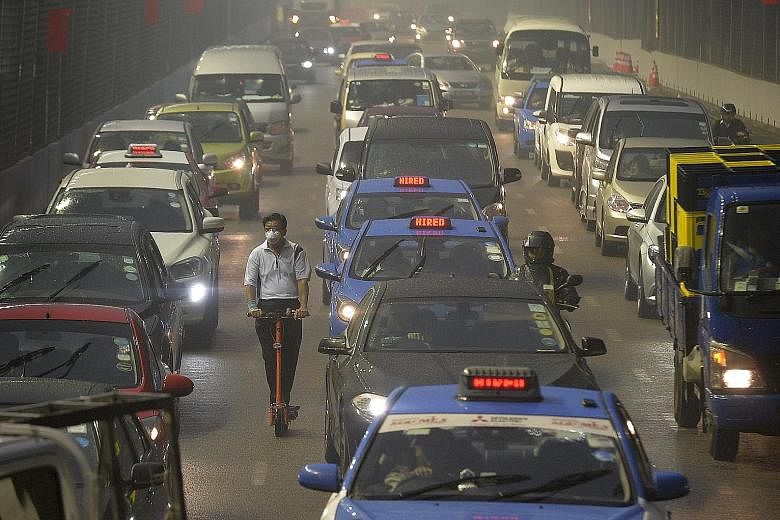For the first time, five nations from the region will conduct an in-depth study to understand how badly they get hit by the haze - in health, social and economic terms.
There is no deadline to complete the study, but substantial results should be available within a year, said Singapore's Minister for the Environment and Water Resources Masagos Zulkifli, who chaired a meeting on transboundary haze pollution yesterday.
Mr Masagos noted that countries collect different types of information depending on their economies.
He said: "Singapore, for example, has impact studies on tourism... on damage suffered because events had to be postponed. In other countries like Indonesia, there is reduction in yield for crops."
Early estimates by Indonesia, for example, had indicated that a haze crisis could set Indonesia back by up to 475 trillion rupiah (S$48.4 billion). A regional study could collate the available information and provide a base document for future reference, Mr Masagos said.
The meeting yesterday was attended by representatives from Malaysia, Thailand, Brunei and Indonesia.
Indonesia was represented by Mr Arief Yuwono, senior adviser to the Minister on Energy.
When asked by reporters for updates on Indonesia's One Map initiative, which aims to detail land ownership there, as well as the status of discussions with Singapore to revive anti-haze cooperation with Jambi province, Mr Arief said the questions will be answered at a separate press conference in Jakarta.
In response to media queries, a spokesman for Singapore's Environment and Water Resources Ministry said the ministry was "as surprised as everyone else when this was stated by the Indonesian minister's representative at the... joint press conference in response to all queries directed to him, as this was not earlier disclosed".
He added that it was a "disappointing and bewildering development", but did not want to speculate as to what this meant for cooperation on haze among the Ministerial Steering Committee countries.
The haze that plagued the region last year was the worst on record, surpassing even the 1997 and 2013 haze crises. With that and the Paris Agreement to tackle climate change in the rear-view mirror, Mr Masagos said the ministerial haze meeting this year had urgent undertones.
There was also renewed focus on Indonesia's carbon-rich peatlands, which emit large amounts of carbon dioxide into the atmosphere when on fire. It was agreed that Singapore and Indonesia will co-host a peatland fire management workshop in West Kalimantan from May 30 to June 1 this year.
Professor Euston Quah, who heads Nanyang Technological University's Department of Economics, said a regional study could paint a fuller picture of the problem. It could also guide governments on investments in haze-free infrastructure.
The study could examine the losses suffered by businesses on account of haze and how badly tourism and productivity were hit, he suggested.
In computing losses on the health front, one should look at not just medical costs, but also the time lost to treatment, he said.
"However, one big major loss, which is difficult measure, is the loss to reputation in lost goodwill among neighbouring victim countries of the transboundary haze," Prof Quah said.


